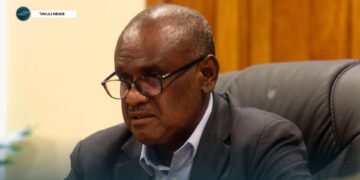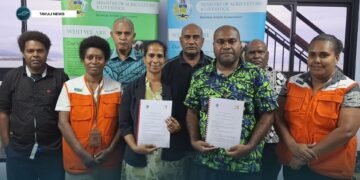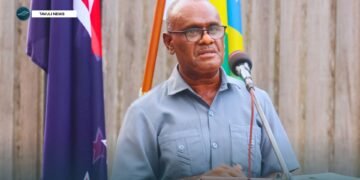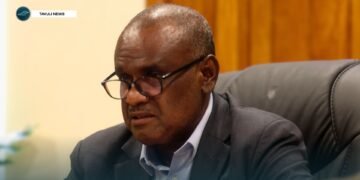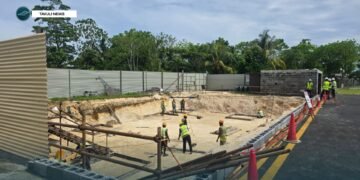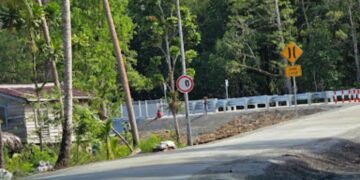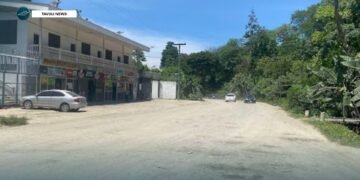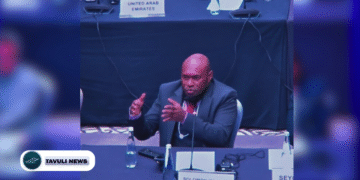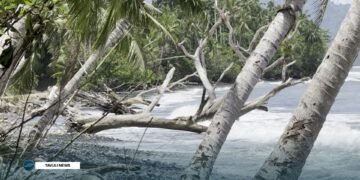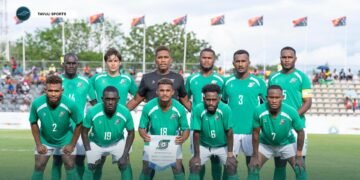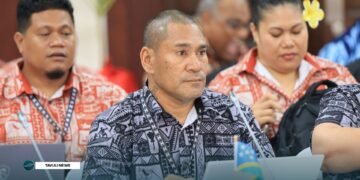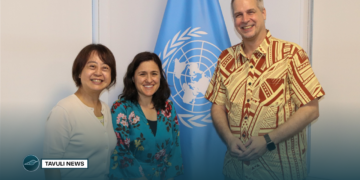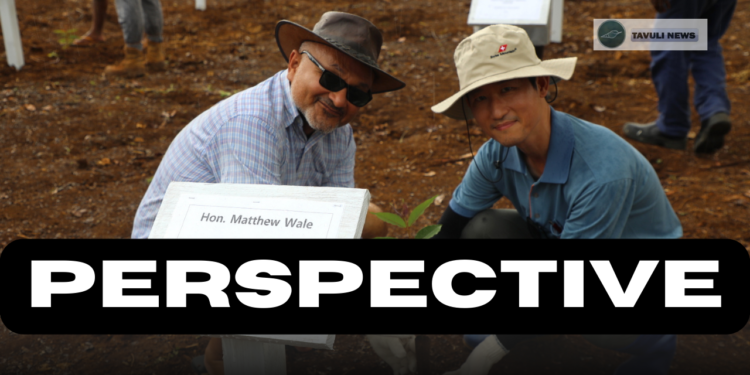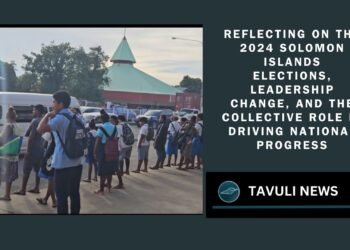Opposition Leaer, Matthew Wale’s Gizo visit sparks political interest and early 2028 electoral positioning.
The recent visit by the Leader of Opposition, Matthew Wale, and his delegation to the Gizo Kolombangara Constituency—particularly to the coastal village of Titiana and the Kolombangara Forest Products Limited (KFPL)—has stirred substantial political interest. While the visit was officially framed as a constituency engagement exercise, its timing, composition, and symbolism suggest broader strategic objectives, possibly aligned with the early stages of a 2028 electoral positioning campaign.
This engagement, which marks Wale’s first formal interaction with constituents in this region, was underscored by a message of accountability, democratic representation, and the central role of the opposition in ensuring good governance. Wale reiterated his commitment to making government work for the people, particularly those in rural and underrepresented communities. This message, though noble, must be contextualized within the broader political theater in which such visits occur.
Strategic Optics and Political Messaging
The optics of the visit were carefully crafted. Titiana Village, long seen as a microcosm of rural Solomon Islands challenges—ranging from climate vulnerability to limited infrastructure—is a strategic choice for opposition outreach. It symbolizes the need for equitable development and positions the opposition as champions of forgotten or neglected communities.
By choosing to engage villagers directly, Wale presented himself not merely as a critic of government but as a listener and facilitator—a role often leveraged by politicians seeking to establish grassroots credibility. These direct interactions serve a dual purpose: they project humility and connection while also enabling data collection on local grievances, which may later be repackaged into campaign priorities.
Political Calculations Beneath the Surface
The presence of Peter Sogoilo, a recent CARE Coalition candidate who unsuccessfully contested the 2024 NGE, adds an intriguing political layer. Sogoilo’s involvement hints at the potential consolidation of opposition-aligned actors in Gizo Kolombangara. This suggests that the CARE Coalition—still a key player in opposition politics—may be preparing to challenge the entrenched influence of the ruling OUR Party in this strategic constituency.
Gizo Kolombangara is no ordinary battleground. It has served as a stronghold for the ruling coalition, producing a sitting MP who doubles as the President of the OUR Party. The seat’s contribution to political continuity and stability within the GNUT administration over the past eight years makes it both a prized possession and a symbolic target for opposition resurgence.
By engaging in early outreach, the opposition may be testing the waters—assessing political sentiment, recalibrating messaging, and identifying local influencers who could be instrumental in shifting political allegiances ahead of 2028.
KFPL Visit: Economic Diplomacy or Political Signaling?
The delegation’s visit to KFPL was more than a courtesy call. KFPL stands as the economic backbone of Kolombangara and is central to the livelihoods of many constituents. Opposition interest in KFPL demonstrates an effort to align with issues that matter most to voters: land, employment, and equitable benefits from natural resource exploitation.
But this too may serve a deeper purpose. By showcasing interest in economic actors, the opposition subtly positions itself as a pro-development alternative—capable of both understanding and influencing private sector partnerships. It also allows opposition figures to identify potential policy gaps or areas of discontent that can be leveraged during campaign season.
The Broader Political Landscape
The Solomon Islands is entering a phase where political alliances are fluid, and early groundwork will determine future power dynamics. Wale’s approach signals an understanding of modern campaign strategies that are no longer limited to election-year mobilization. Instead, they revolve around long-term constituency building, narrative control, and visibility in key constituencies.
Furthermore, his actions may be read as part of a national strategy to reposition the Opposition not merely as critics of government, but as a government-in-waiting—equipped with policy perspectives, constituency relationships, and readiness for leadership.
The Road to 2028
While many in Gizo Kolombangara welcomed the visit, political observers remain keenly attuned to its implications. Will this mark the beginning of a sustained opposition presence in a traditionally government-aligned seat? Can the opposition break through the OUR Party’s stronghold in the West? These are the questions that will shape the next electoral cycle.
Ultimately, the visit to Titiana and KFPL has opened a new political chapter in the Western Province. Whether it is part of a genuine awareness campaign or a well-orchestrated electoral strategy, one thing is clear: Gizo Kolombangara will remain a crucial political battleground in the years ahead.
As 2028 approaches, constituents must remain informed, engaged, and critical. The strength of Solomon Islands’ democracy lies in the capacity of its citizens to hold leaders accountable—not just during election time, but throughout the governance cycle. Whether government or opposition, all leaders must be prepared to translate visits into policies, promises into programs, and presence into progress.
*The views expressed in this article are those of the writer and do not necessarily reflect the views of Tavuli News. The writer remains anonymous




